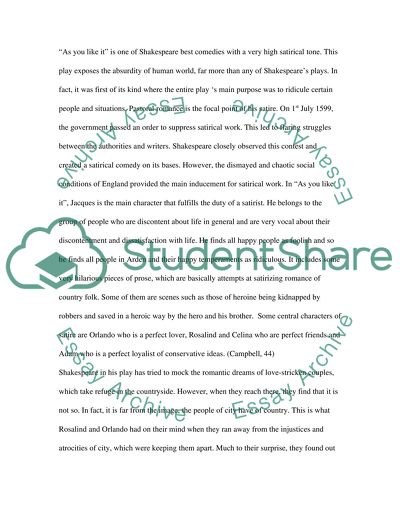Cite this document
(“Satire in Shakespeare Essay Example | Topics and Well Written Essays - 2000 words”, n.d.)
Retrieved from https://studentshare.org/miscellaneous/1509104-satire-in-shakespeare
Retrieved from https://studentshare.org/miscellaneous/1509104-satire-in-shakespeare
(Satire in Shakespeare Essay Example | Topics and Well Written Essays - 2000 Words)
https://studentshare.org/miscellaneous/1509104-satire-in-shakespeare.
https://studentshare.org/miscellaneous/1509104-satire-in-shakespeare.
“Satire in Shakespeare Essay Example | Topics and Well Written Essays - 2000 Words”, n.d. https://studentshare.org/miscellaneous/1509104-satire-in-shakespeare.


